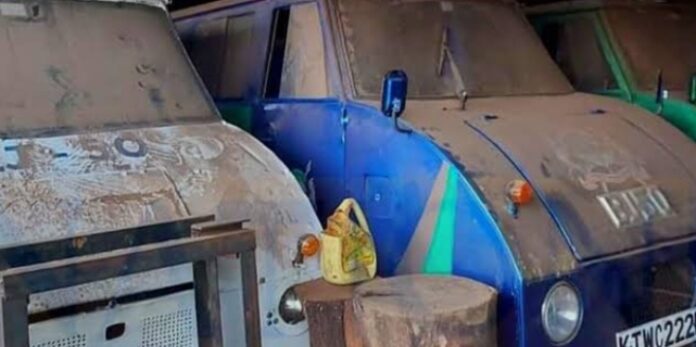The BJ50 was a contraption that many struggled to classify. Some Kenyans said it was a car. Others said it was a tuktuk. The BJ50 was the brain of Samwel Gatonye, the founder of the automaker garage known as Sagak Technology Automakers.
Whichever description the BJ50 was given, its popularity was like wildfire. Not because every Kenyan motoring enthusiast wanted to get one, but because of how hilarious it looked. Most Kenyans joked that they resembled trolleys used to hawk smokies and eggs in the streets.
There was also the big money and development support that the Laikipia County government under former Governor Ndiritu Muriithi was willing to throw at it.
For Gatonye, the BJ50 was serious business. In fact, he had applied and received approval from the Kenya Bureau of Standards (KEBS) to certify that his business met he required manufacturing standards.
At the same time, KEBS also gave Gatonye’s Sagak an approval for the BJ50s with a maximum speed of 70 kilometres per hour and cargo capacity of 800 kilograms.
Sagak initially made six of the vehicles which were reportedly tested and approved by KEBS. These units then got certified with the KG short term dealership number plates. They were ready for sale to the public.
Fast forward to 2023. The once popular machines are rotting away at Sagak’s garage. The maker, Gatonye, is reportedly a farmer at Mairo Inya in Nyahururu.
What happened? In a recent media interview, Gatonye said that he stopped production of the BJ50s after the last general election which saw the defeat of then Laikipia County Ndiritu Muriithi.
The installation of the new county government brought to an end the type of support that Gatonye was receiving, forcing what he termed as temporary closure of his business.
Equity takes on Fuliza with new mobile overdraft loans of up to Sh. 100,000
“There were orders worth Sh. 2.2 million that are yet to be delivered. The company is in debt and has requested clients to be patient as we raise additional capital and get a way forward from the new county leadership,” Gatonye told the media.
“The vehicles were not fully furnished and therefore we could not release them to the market. More is needed to facilitate the full realization of the dream of assembling our own vehicles as a country.”









